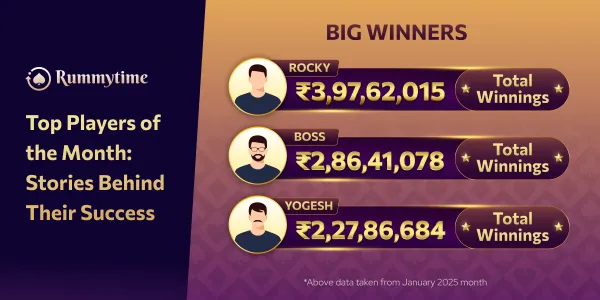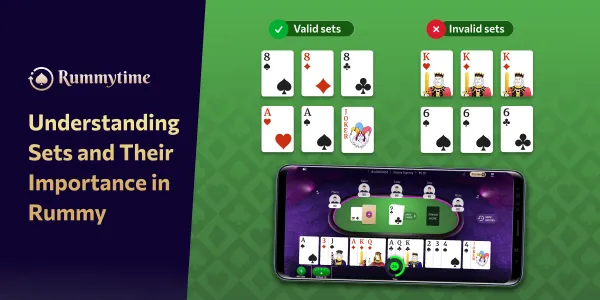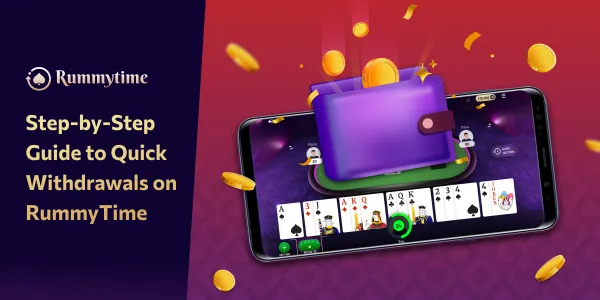- Home
- Rummy Sphere
- Difference between Points, Pool, and Deals rummy
Difference between Points, Pool, and Deals rummy
Among all the card games, rummy is the most popular game in India. There are three main variations of rummy that you can play: Pool rummy, Points rummy, and Deals rummy.
RummyTime Elite Editors | 15th Jul, 2025

Difference Between Points Pool and Deals Rummy
Among all the card games, rummy is the most popular game in India.
There are multiple variations of rummy and all the variants are available online.
Each variation has its own style and excitement. There are three main variations of rummy that you can play: Pool rummy, Points rummy, and Deals rummy.
Though these formats of rummy vary a little bit in terms of gameplay but there are many common rules. These rummy variations follow the fundamental rules of 13 card rummy, but the only difference is in the point calculation and distribution of winnings.
Let’s explore the difference between Points, Pool and Deals rummy in this blog.
Points rummy
Points rummy is the most popular variant and the fastest game as compared to others.
It is played between 2 to 6 players with each player getting 13 cards at the start of the game.
In Points rummy, each player gets 13 cards at the beginning of the game. Each game has a single deal, and each card has predefined points.
As per the rummy rule, you need to make at least two sequences and one of them needs to be a pure sequence. The other sequence can be both pure or impure. The remaining cards can be arranged in sets or sequences.
After arranging all the 13 cards in sequences and sets with zero points, players can declare their hand.
The player who makes a valid declaration first will be the winner of the game. The winning amount will be calculated based on the point value and the unmatched cards of the losing player.
Example of Points rummy:
Suppose there are 2 players, player1 and player2, player1 declares with zero points and player2 has unmatched cards with 20 points, player2 will lose 20 points. If the point value is ₹1 per point, player1 wins ₹20.
Pool rummy
Pool rummy is the longer and more strategic format of the rummy game.
This variation is preferred by the skilled players.
Pool rummy is a 2 to 6 players game. There are three variations of Pool rummy: 61, 101, and 201 Pool.
Pool rummy is played until players reach a predefined maximum points threshold (such as 61, 101, or 201 points).
The main objective of the game is to keep your points as low as possible. The game goes on until all but one player remains below the predefined points.
If the player reaches the maximum penalty points based on the selected format (61, 101, or 201), they will be eliminated from the game. The winner is the last remaining player in the game.
Example of Pool rummy:
Let’s say you are playing 101 Pool rummy. If a player crosses 101 points during the game and accumulates 102 points, they will be eliminated. The remaining players continue until one winner remains.
The players choose a table with a fixed Buy-In, that helps in building the total prize pool.
The prize pool gets bigger with a greater number of players.
Deals rummy:
Deals rummy is one of the popular formats of the rummy game.
It is a 13 card game with its sub variants. Players can play 1-deal, 2-deal or 3-deal games, based on the format offered. It follows the basic rummy rules and is played with 2 to 6 players.
Every player will get a predefined number of chips at the beginning of the game. Each player plays with these chips for the predefined number of deals.
The objective is the same: to arrange all 13 cards in sets and sequences.
The winner of each deal wins chips from the losing players based on their points.
Deals rummy is similar to Points rummy, but instead of just one round or match, it is played over multiple deals.
Note: The drop option is not available for 2 player 1-deal variant of the game.
Points rummy vs. Pool rummy vs. Deals rummy
Let’s explore this comparison table to understand the key difference.
| Feature | Points rummy | Pool rummy | Deals rummy |
| Duration of the game | Single round | Multiple rounds | Fixed number of deals (1, 2, or 3) |
| Number of Players | 2 to 6 | 2 to 6 | 2 to 6 |
| Number of Cards | 13 cards/player | 13 cards/player | 13 cards/player |
| Objective | Make valid declaration first | Avoid reaching the maximum penalty points | Win the maximum chips across the given deals |
| Scoring System | Based on points of losing players | Players get eliminated on reaching point cap | Based on chips won/lost after each deal |
| Elimination | No | Yes | No |
| Drop Option | Available | Available | unavailable in 2-player 1-deal format |
| Buy-In System | Fixed per point | Fixed Buy-In; builds prize pool | Fixed chips given per player |
| Best For | Quick games and casual players | Skilled players who prefer strategy | Competitive players seeking fixed sessions |
| Available on RummyTime App | Yes | Yes | Yes |
Conclusion:
Rummy variations are there for all kinds of players who want to play quick rounds, strategic play, or fixed session challenges. Points, Pool, and Deals rummy offer unique gameplay; however, they share the same exciting objective of making sets and sequences with the 13 cards. Now explore all the variants and find your winning style.
FAQs:
Here are the most common frequently asked questions on Points, Pool and Deals rummy variants.
1. What distinguishes Points rummy from Pool rummy?
2. Which version of rummy is better for a faster game?
3. Are there online apps where I can play these versions?
4. Is it possible to win actual money in Deals rummy?
5. Which Rummy variant is best for beginners?
Featured articles







